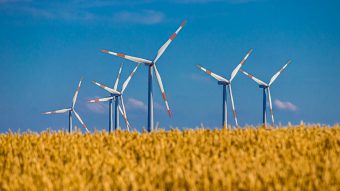
The International Renewable Energy Agency (IRENA) has pointed out that reaching over 11 Terawatts of installed renewables capacity as set at COP28 would necessitate overcoming identified structural barriers. One of those barriers is related to the evolving energy transitions needs that demand skilled workforce.
Well-skilled workforce filling in a broad range of occupational profiles determines the success of renewables expansion. IRENA already estimated that with the efforts to triple installed renewables capacity under its 1.5°C Scenario, renewable energy sector jobs will also triple from 2021 levels to about 40 million worldwide by 2050.
These jobs will require matching skills and education. Today, many countries are already facing shortages in tradespeople such as electricians and grid engineers. The same applies to the workforce responsible for overseeing the energy sector; policy makers, energy planners, regulators and system operators.
More:
- Maribor – Circular Economy Implementation Hub
- EBRD and EU to Mobilise Up to 100 Million Euros for Critical Raw Materials Investments
- On the Way to the Energy Transition
This situation calls for the development of institutional and human capacities through concerted action in education and skills building. To avoid significant skills gaps and to match the supply produced by the education sector with the projected demand of industries, countries pledging to reach the shared renewables target should proactively coordinate efforts.
IRENA suggests governments to take the following urgent actions: Anticipate labour market disruptions and address workforce gaps, prepare new labour market entrants; upskill and reskill existing workers and allocate greater resources and training to energy sector governance (e.g. policy makers, energy planners, regulators).
Source: IRENA

